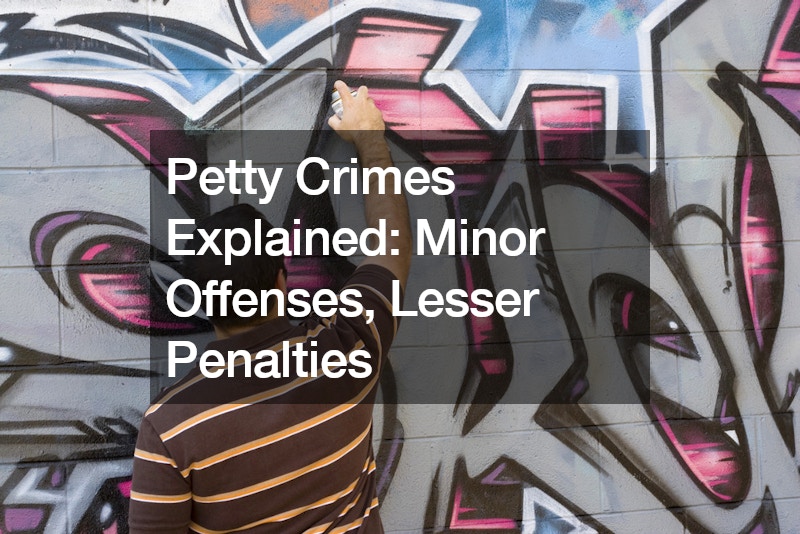Ever wondered what happens when you get caught jaywalking or littering? These are considered petty offenses, minor legal infractions with less severe consequences than major crimes. Understanding petty offenses can help you navigate situations where you might encounter them.
There are two main ways the term “petty offense” is used. In some legal systems, it’s interchangeable with a misdemeanor, a less serious offense than a felony (like theft or vandalism).
In other systems, petty offenses form a separate category, even less severe than misdemeanors. These typically don’t become part of your permanent criminal record.
Examples of petty offenses include public intoxication, disturbing the peace, disorderly conduct, and minor traffic violations. The consequences for petty offenses are generally less harsh than for more serious crimes. These cases are usually tried in lower courts and might not require a court appearance at all. Often, a citation and a fine are the only penalties involved, with paying the fine acting as an admission of guilt.
Unlike with serious charges, legal representation isn’t mandatory for petty offenses. Additionally, the right to a jury trial might not apply in all jurisdictions. Instead, a judge or magistrate might decide the outcome.
If you are convicted of a petty offense, the punishments can include fines, short jail time, or community service. However, there are usually maximum limits on these penalties. Judges can’t impose excessive fines, and jail time for petty offenses is often capped at a short period, or even non-existent in some cases.
It’s important to remember that what’s considered a petty offense can vary greatly depending on location. Possession of marijuana or solicitation of prostitution, for instance, might be petty offenses in one area but serious crimes in another. Even within a single country, laws regarding petty offenses can differ between states or provinces.
So, while getting a ticket for jaywalking might not be a major ordeal, it’s always best to be aware of the local laws and avoid any actions that could be considered petty offenses.
.
